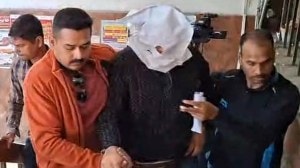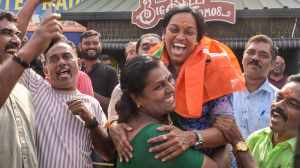Invalidating his arrest in a terror case, the Supreme Court on Wednesday (May 15) ordered the release of Newsclick founder-editor Prabir Purkayastha. The reason the court gave: the Delhi Police failed to inform Purkayastha the grounds of his arrest before taking him into custody.
The ruling by a Bench led by Justice B R Gavai is significant because it emphasises that proper procedure and due process are the guardrails against arbitrary action, even in stringent terror cases.

The issue of the timing of the arrest
Purkayastha was arrested at about 6.30 am on October 3, 2023 by the Special Cell of the Delhi Police. Invoking the Unlawful Activities (Prevention) Act, the Delhi Police alleged that Newsclick received money for pro-China propaganda.
The FIR mentioned serious offences: Sections 13 (unlawful activities), 16 (terrorist act), 17 (raising funds for terrorist acts), 18 (conspiracy), and 22(C) (offences by companies, trusts) of the UAPA, and Sections 153 A (promoting enmity between different groups) and 120B (criminal conspiracy) of the Indian Penal Code (IPC).
Purkayastha’s case is that on October 4, 2023, without any prior notice, he was taken to the residence of a special judge at 6.30 am for his remand hearing. Purkayastha’s lawyers claimed that on their client’s insistence, around 7 am, they were informed about the proceedings over a phone call.
In pleadings before the Delhi High Court, Purkayastha said that an unsigned copy of the remand application was sent by WhatsApp to his lawyers without mentioning the time of the arrest or the grounds of arrest.
However, even as objections to the remand were filed before 8 am, Purkayastha’s lawyers were told that the remand order had already been passed, and seven days of police custody had been granted.
Story continues below this ad
Crucially, official records show that the remand order was signed at 6 am, which is even before Purkayastha was produced before the judge or his lawyers were informed.
Even the FIR in the case was made public only after a few days had passed after his arrest.
The issue of the legality of arrest
Purkayastha’s case was essentially this: that his arrest was illegal as it did not follow due process.
Article 22(1) of the Constitution, which is about protection against arrest and detention, reads: “No person who is arrested shall be detained in custody without being informed, as soon as may be, of the grounds for such arrest nor shall he be denied the right to consult, and to be defended by, a legal practitioner of his choice.”
Story continues below this ad
Significantly, on October 3, 2023, the same day on which Purkayastha was arrested, the Supreme Court, in Pankaj Bansal versus Union of India, held that to give true meaning to constitutional and statutory mandates, “it would be necessary, henceforth, that a copy of such written grounds of arrest is furnished to the arrested person as a matter of course and without exception”.
While the Pankaj Bansal case was regarding a money laundering offence under the Prevention of Money Laundering Act (PMLA), the UAPA too contains a similar provision, which requires the grounds of arrest to be presented. Since both the laws are comparable, the ruling would be deemed to be applicable to UAPA as well.
This ‘technicality’ is crucial because the bar for granting bail in stringent special legislation such as PMLA and UAPA is very high, making it virtually impossible to get bail. Therefore, the protection against unlawful arrests is even more important in stringent offences.
The Delhi Police’s version in court
Solicitor General Tushar Mehta, who appeared for the Delhi government, had argued before the Delhi High Court that the offences alleged against Purkayastha “are very serious, and as such ought not to be interfered by this court on technical grounds”.
Story continues below this ad
Mehta had invoked India’s national security, the stability and integrity of the country, and cited email exchanges between Purkayastha and “other entities”, which indicate “a deliberate attempt to show the state of Jammu and Kashmir and Arunachal Pradesh as disputed territories”.
“So much so that the words used for Arunachal Pradesh in particular are “Northern border of India” which, according to the learned SG, is generally used as a Chinese propaganda,” the Delhi High Court had recorded in its order on October 13, 2023, upholding Purkayastha’s arrest.








































